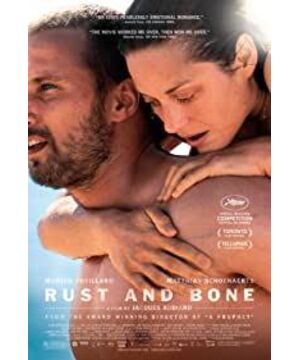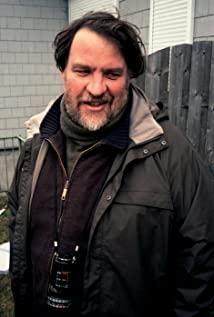A down-and-out father who wandered with his children, a woman who had just lost her legs in an accident, met by chance, kept each other warm, struggled in their own lives, and hesitated in each other's feelings. It sounds a bit bloody, but the director's filming is gentle and delicate, neither sensational nor plain, and the slightly shaking lens reveals truth, bitterness, helplessness, and moving.
The title of the film originally referred to the smell of blood after the face was punched and the lips collided with the teeth. Blood contains iron, "rust" refers to the bitter taste of blood; "bone" represents teeth. In the film, the male protagonist is a boxer, and this taste refers to his identity (the author of the original novel is also a boxer, and he is obviously familiar with this taste); by extension, rust and bone can refer to any unexpected things in life. The blow, or the unforgettable pain. After the female protagonist was amputated, she went through a process of suicide, numbness and negativity, and regained her confidence, while the simple-minded and well-developed male protagonist did not regain her missing sense of responsibility until she nearly lost her child. It can be said that both of them have been reborn after tasting "rust and bone". They are unfortunate and lucky because there is each other.
Now the CGI is really consummate, and the broken legs are flawless. Of course, Marion Cotillard's performance is also a three-pointer, and the Golden Globe nomination is well deserved. It's a bit shocking to have sex with a broken leg. It's important for French actresses to let go.
View more about Rust and Bone reviews











